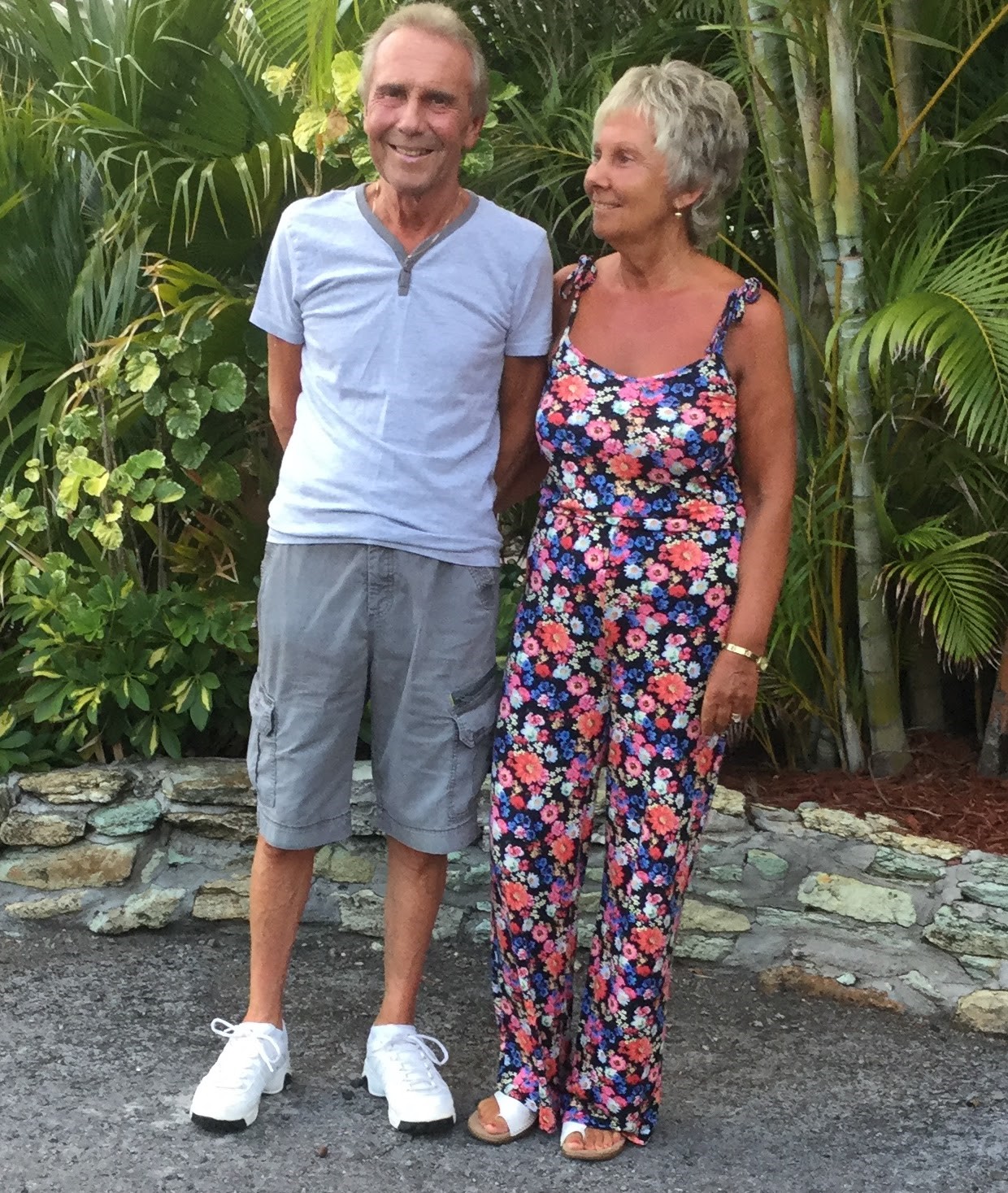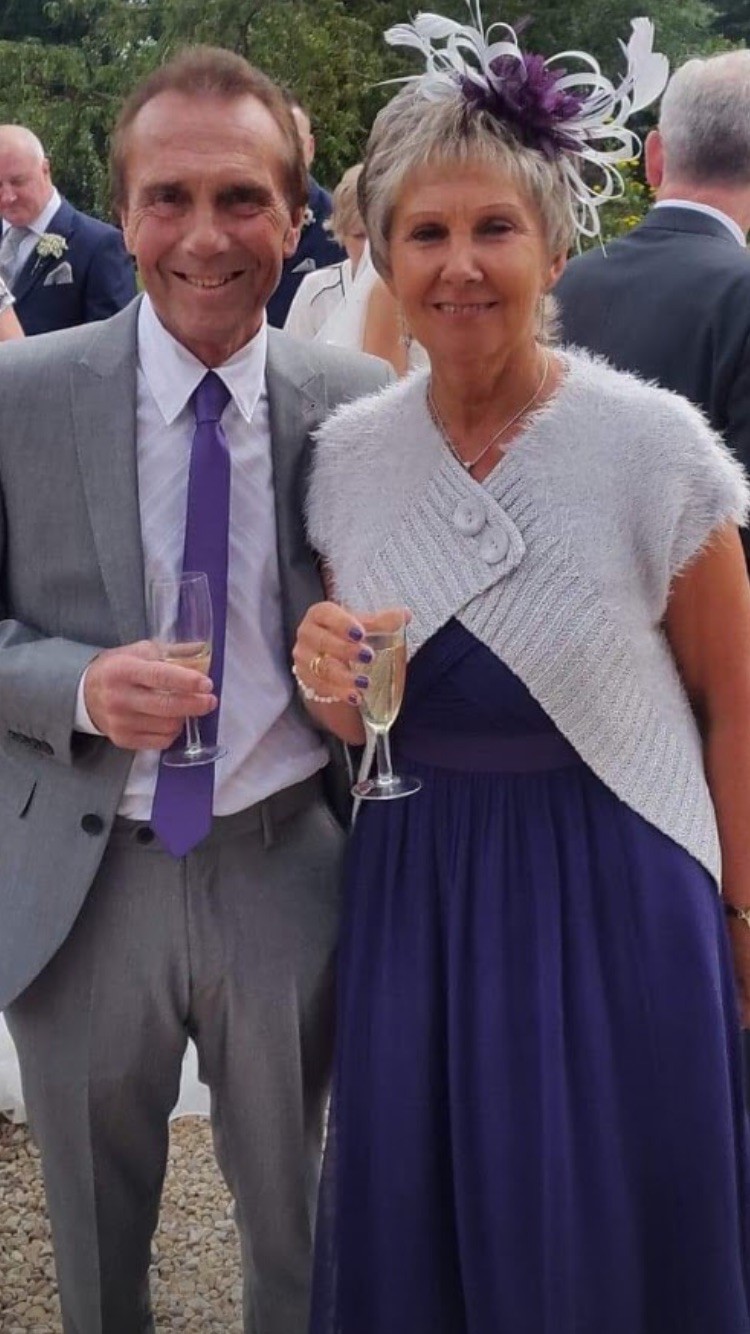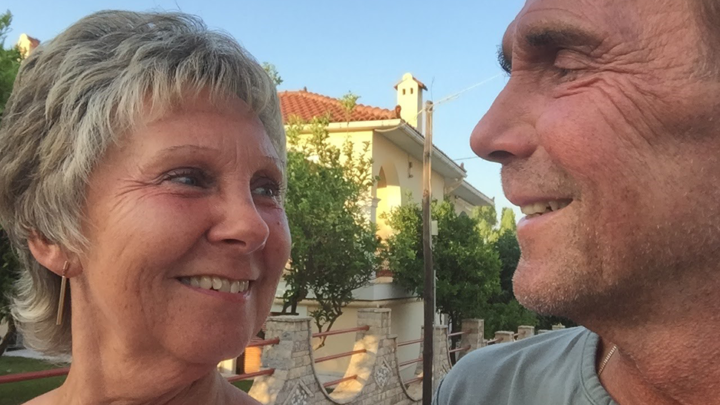Ruth Vowles, 68, from Sandiacre, says that the ‘Tears to Laughter’ group has been like a ‘big hug’ during a traumatic year. She has been attending the weekly peer-to-peer support group since her husband Steve’s death last summer.
People know what you’re going through
“There are people there who know what you’re going through – maybe not exactly the same circumstances as you – but it’s the being there and being with other people, who make time for you, that’s so good about the group. “I have sat in the group and cried, been really upset. You have days where you feel perfectly fine and others where you just think ‘why do I bother?’. It can be lonely.You can share your feelings and it lifts my mood
“We have a WhatsApp group, too, where everyone shares pictures of what they have been up to. It’s somewhere that you can share your feelings and it lifts my mood.
“Julie Waite, who runs the sessions, really cares about everyone in the group. She makes you feel like you’re the person who she has been waiting for to walk through the door. She makes a huge difference to the lives of a lot of people; it’s more than a job for her.”
Steve Vowles, a former electrician, was just 67-years-old when he died. The couple had been together for 46 years.
Steve was diagnosed with a low immune system in his early twenties. He contracted bronchiectasis – a condition in which airways of the lungs remain persistently widened – and, later in life, Chronic Obstructive Pulmonary Disease (COPD).
Steve never let his illness affect his life
Steve bravely managed treatment for his illness at home, much to the admiration of Ruth. “Steve never let his illness affect his life,” said Ruth, who has two sons, Chris and Mark, and four grandchildren.
“It was quite intense. It involved having four needles in his stomach one week and four in his legs the week after. He was hooked up to a pump which would intravenously supply the medicine he needed. He was very brave.”
Steve’s condition deteriorated from Christmas 2019 and, on Ruth’s birthday, he was admitted into hospital for the first time.
Not knowing when, or if, I would see him again was very, very difficult
“It was important to him that he stayed home for as long as possible, but he was starting to struggle. His breathing wasn’t good and he ended up in hospital three times. “Seeing him being taken away and not knowing when, or if, I would see him again was very, very difficult. Because of Covid, we had been shielding from the very beginning because of his immunity issues – but that wasn’t hard; we enjoyed being together. So then being apart was tough.”
Steve began to receive treatment in hospital but, because of Covid restrictions at the time, Ruth was initially unable to visit.
“His hospital bed at the Royal Derby Hospital had a window which he could see out of. I would stand in the car park and phone him, so that he could look out of the window and see me and we could talk,” added Ruth.
He was told that he had months and not years left to live
“That time was tough. Steve just wanted to come home; that’s all he wanted. I think the hardest thing was him being given an end-of-life care plan. There was no family there to comfort him. It all seemed very final when he was told that he had months, and not years, left to live.” Ruth says that she never talked about death with Steve and when he was given options by nurses, to make his final few months more comfortable, she thought that he would come home. He chose to stay in hospital. “That surprised me but I think he was quite desperate at that point and wanted to do all he could. Steve never talked about his feelings. I never knew why he’d made that choice.”
The next day, after making the decision to remain in hospital, Ruth received a phone call to say that Steve had gone rapidly downhill overnight. When she arrived at the Royal Derby Hospital in the morning, Steve was heavily sedated and, a few hours later, he died.
I never had the chance to tell him how much I loved him
“I felt hard done by because we hadn’t had a chance to talk through how he felt… I never had the chance to tell him how much I loved him, how grateful I was for everything he had done for me and what a lovely life we had enjoyed together. That was the hardest thing, for me. Also one of our sons didn’t get the chance to visit him during his hospital stay.” “I don’t even remember our final conversation together. His death was just so sudden. No-one, not even the nurses were expecting it. I think that Steve just thought that enough was enough. I was lucky to have the support of a friend, Jane, during his final hours. “Leaving him in the hospital was just heart-breaking. The realisation that, all of a sudden, you’re on your own. It was unbearable.”
The family had a ‘small but intimate’ funeral due to Covid restrictions but, with Ruth’s sons living miles away, she felt isolated in the weeks that followed his death.
Having someone to talk to has helped
She joined the Tears to Laughter bereavement group – people can self-refer or be referred to the group by others – just six weeks after Steve’s death and says that having someone to talk to has helped her.I don’t know how I would have coped without the group. Just seeing someone in person, being able to talk through your feelings and having them listen, has been good for me.
“The group is a place where I can share my thoughts. It’s a warm and caring place to be and you can just sit there and listen. I found it hard in the beginning but everyone has been so welcoming and supportive. It’s been a lifeline for me.”

